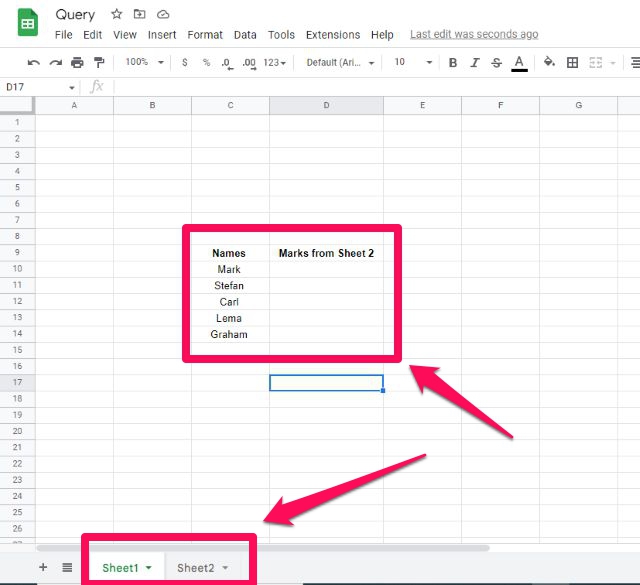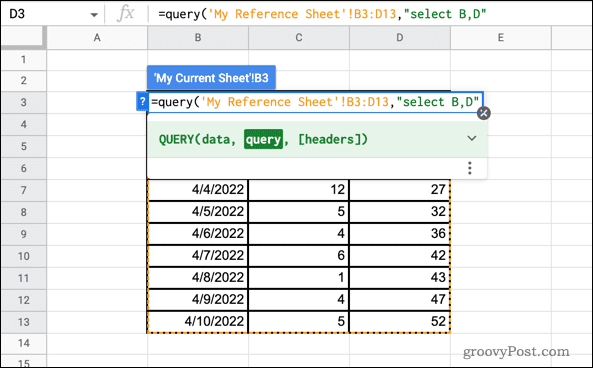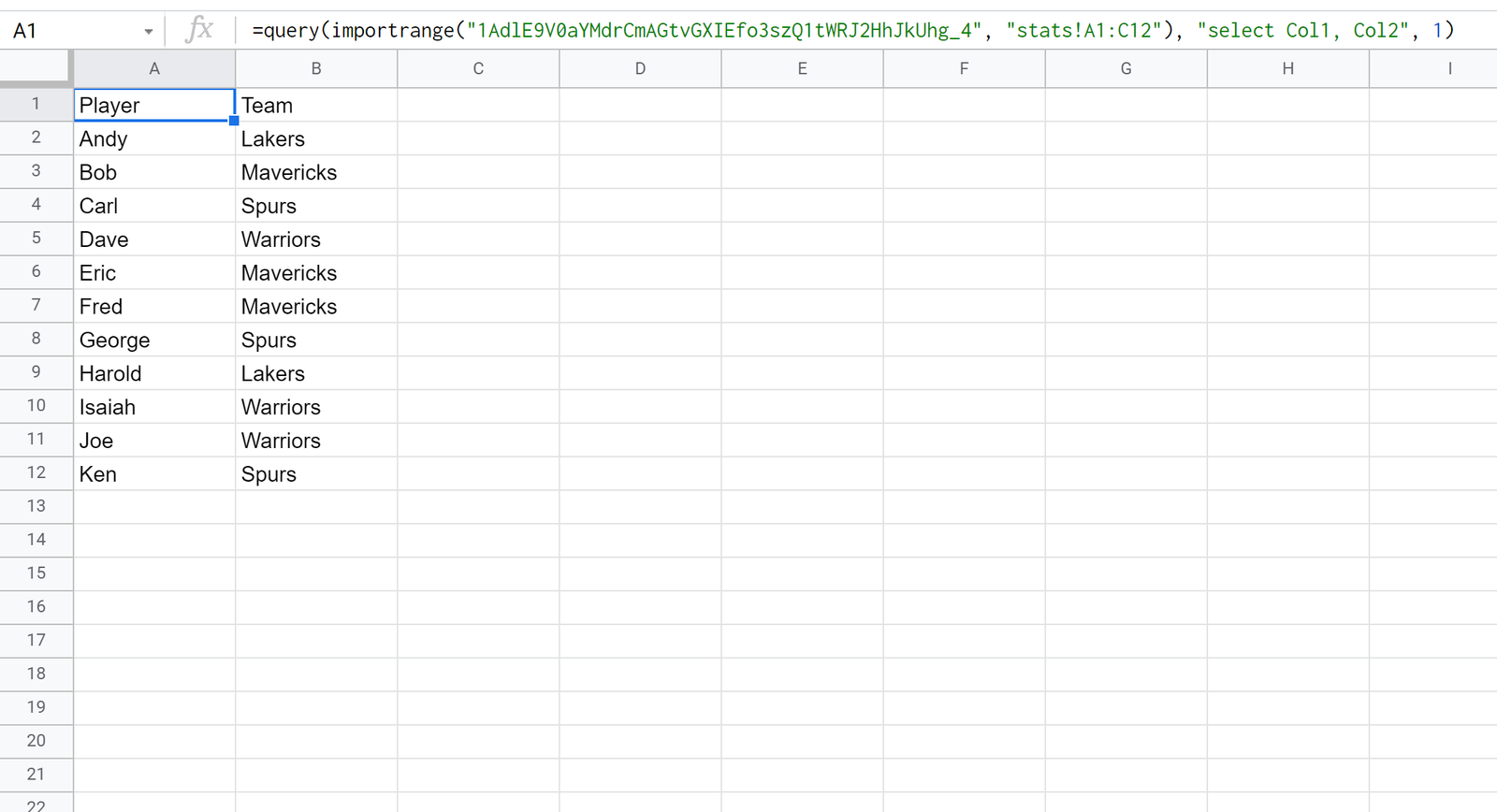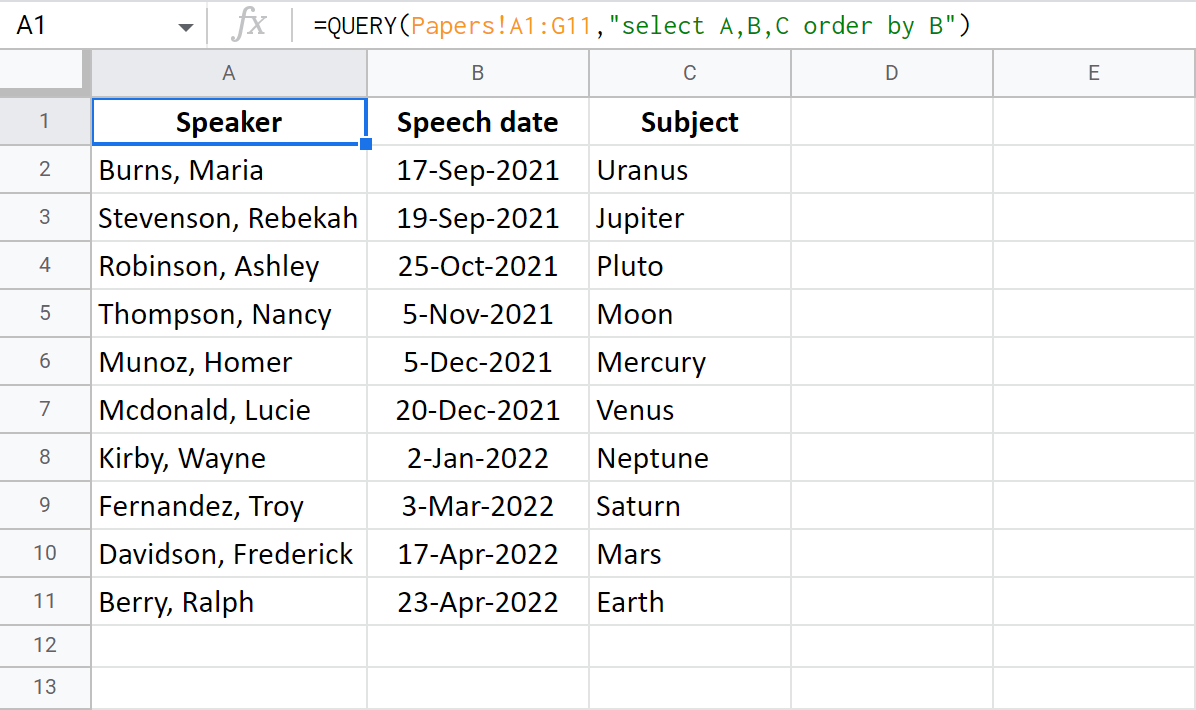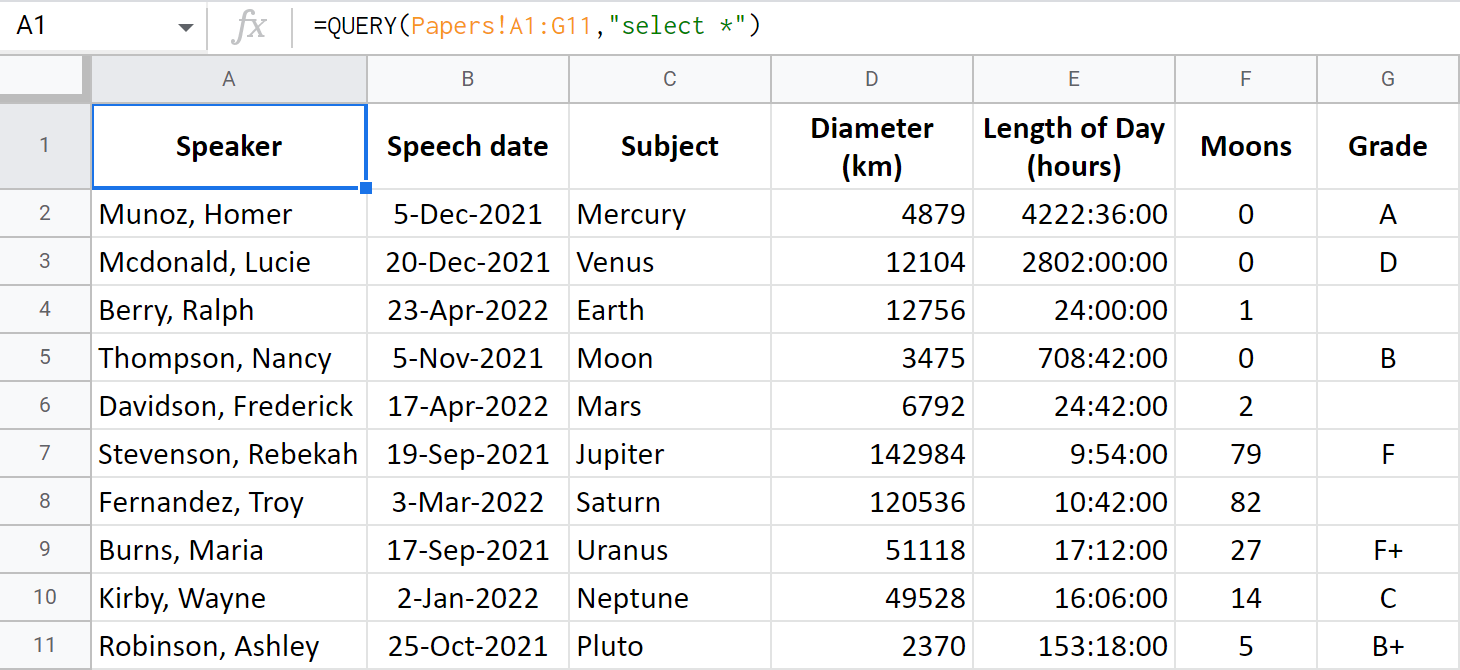
Google Sheets is a powerful tool for data analysis and manipulation. One of its most useful features is the ability to query data from another sheet within the same spreadsheet or even from a different spreadsheet. This allows you to consolidate data, create reports, and perform complex analysis across multiple sheets. In this article, we will explore five ways to query another sheet in Google Sheets.

Method 1: Using the QUERY Function
The QUERY function is a powerful tool in Google Sheets that allows you to query data from another sheet or even from a different spreadsheet. The syntax for the QUERY function is as follows:
=QUERY(range, query, [headers])
Where:
rangeis the range of cells that you want to query.queryis the query that you want to execute.[headers]is an optional parameter that specifies whether the first row of the range should be treated as headers.
For example, suppose you have a sheet called "Data" with the following data:
| Name | Age | Country |
|---|---|---|
| John | 25 | USA |
| Mary | 31 | UK |
| David | 42 | Australia |
You can use the following QUERY function to retrieve all rows where the age is greater than 30:
=QUERY(Data!A:C, "SELECT * WHERE C > 30", 0)
This will return the following result:
| Name | Age | Country |
|---|---|---|
| Mary | 31 | UK |
| David | 42 | Australia |
Method 2: Using the IMPORTRANGE Function
The IMPORTRANGE function allows you to import data from another sheet or even from a different spreadsheet. The syntax for the IMPORTRANGE function is as follows:
=IMPORTRANGE(spreadsheet_url, range_string)
Where:
spreadsheet_urlis the URL of the spreadsheet that you want to import data from.range_stringis the range of cells that you want to import.
For example, suppose you have a sheet called "Data" in a different spreadsheet with the following data:
| Name | Age | Country |
|---|---|---|
| John | 25 | USA |
| Mary | 31 | UK |
| David | 42 | Australia |
You can use the following IMPORTRANGE function to import all data from the "Data" sheet:
=IMPORTRANGE("https://docs.google.com/spreadsheets/d/your_spreadsheet_id", "Data!A:C")
This will import all data from the "Data" sheet into your current sheet.
Method 3: Using the VLOOKUP Function
The VLOOKUP function allows you to look up data in another sheet or even from a different spreadsheet. The syntax for the VLOOKUP function is as follows:
=VLOOKUP(lookup_value, table_array, col_index_num, [range_lookup])
Where:
lookup_valueis the value that you want to look up.table_arrayis the range of cells that you want to search.col_index_numis the column number that you want to return.[range_lookup]is an optional parameter that specifies whether you want to perform an exact match or an approximate match.
For example, suppose you have a sheet called "Data" with the following data:
| Name | Age | Country |
|---|---|---|
| John | 25 | USA |
| Mary | 31 | UK |
| David | 42 | Australia |
You can use the following VLOOKUP function to look up the age of John:
=VLOOKUP("John", Data!A:C, 2, FALSE)
This will return the value "25".
Method 4: Using the INDEX and MATCH Functions
The INDEX and MATCH functions allow you to look up data in another sheet or even from a different spreadsheet. The syntax for the INDEX and MATCH functions is as follows:
=INDEX(range, MATCH(lookup_value, range, [match_type])
Where:
rangeis the range of cells that you want to search.lookup_valueis the value that you want to look up.[match_type]is an optional parameter that specifies the type of match that you want to perform.
For example, suppose you have a sheet called "Data" with the following data:
| Name | Age | Country |
|---|---|---|
| John | 25 | USA |
| Mary | 31 | UK |
| David | 42 | Australia |
You can use the following INDEX and MATCH functions to look up the age of John:
=INDEX(Data!B:B, MATCH("John", Data!A:A, 0))
This will return the value "25".
Method 5: Using the FILTER Function
The FILTER function allows you to filter data in another sheet or even from a different spreadsheet. The syntax for the FILTER function is as follows:
=FILTER(range, condition)
Where:
rangeis the range of cells that you want to filter.conditionis the condition that you want to apply to the data.
For example, suppose you have a sheet called "Data" with the following data:
| Name | Age | Country |
|---|---|---|
| John | 25 | USA |
| Mary | 31 | UK |
| David | 42 | Australia |
You can use the following FILTER function to filter all rows where the age is greater than 30:
=FILTER(Data!A:C, Data!B:B > 30)
This will return the following result:
| Name | Age | Country |
|---|---|---|
| Mary | 31 | UK |
| David | 42 | Australia |
Gallery of Google Sheets Query Functions




What is the best way to query another sheet in Google Sheets?
+The best way to query another sheet in Google Sheets depends on your specific needs and goals. If you want to perform complex queries, the `QUERY` function may be the best option. If you want to import data from another sheet or spreadsheet, the `IMPORTRANGE` function may be the best option.
How do I use the `QUERY` function in Google Sheets?
+The `QUERY` function in Google Sheets allows you to query data from another sheet or even from a different spreadsheet. The syntax for the `QUERY` function is as follows: `=QUERY(range, query, [headers])`. Where `range` is the range of cells that you want to query, `query` is the query that you want to execute, and `[headers]` is an optional parameter that specifies whether the first row of the range should be treated as headers.
How do I use the `IMPORTRANGE` function in Google Sheets?
+The `IMPORTRANGE` function in Google Sheets allows you to import data from another sheet or even from a different spreadsheet. The syntax for the `IMPORTRANGE` function is as follows: `=IMPORTRANGE(spreadsheet_url, range_string)`. Where `spreadsheet_url` is the URL of the spreadsheet that you want to import data from, and `range_string` is the range of cells that you want to import.
